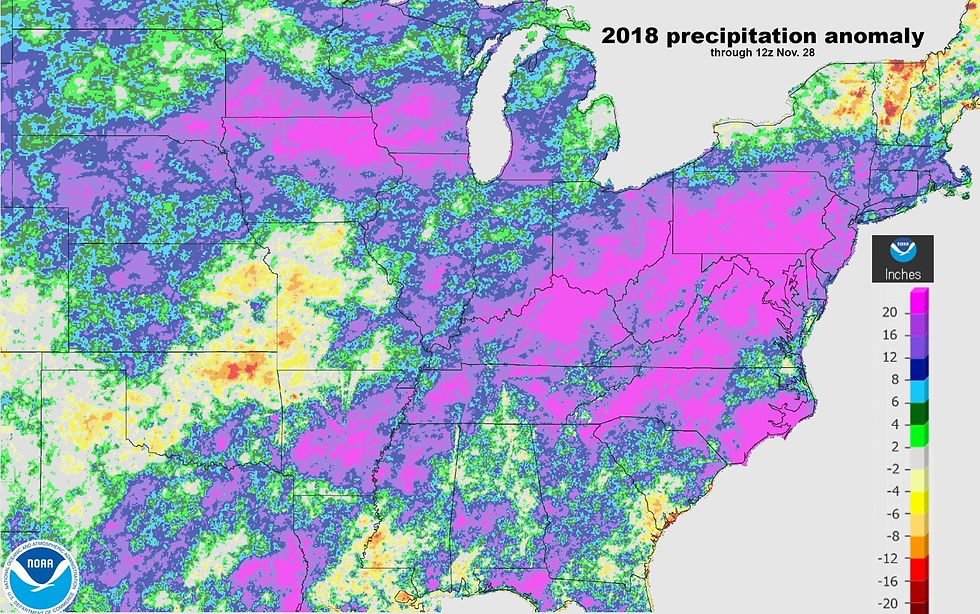The Most Important Fish in the Sea
- Watershed Moments
- Jul 21, 2017
- 3 min read
Without a doubt menhaden are the single most important fish in the western Atlantic Ocean. If you thought the industrial revolution was powered by whale oil you might be suprised by our research. Whale oil was used mostly for fuel for lamps. By the time Moby Dick was published by Herman Melville, whaling was on the decline. During the civil war, northern industrialists saw the vast wealth of the Chesapeake Bay and went south to exploit those riches. Whale ships were converted and the mighty purse seine appeared. In George Brown Goode’s book, A History of the Menhaden released in 1879, he states the menhaden population north of Cape Cod was gone.
What is a Menhaden fish? Menhaden, a bony and oily fish, measure up to 15 inches long and are part of the herring family. These fish play a critical ecological role as forage feeders that eat plankton and generate protein and fat that nourish animals higher up on the food chain, such as sea birds, dolphins, whales and striped bass. The Menhaden population is critical to the health of our waterways and is being severely diminished because of their supposed healthy benefits claimed by fish oil companies.
The Most Important Fish in the Sea, a book by Bruce Franklin, 2007, speaks to over-fishing and how it’s threatening this species and our ecosystem. In his book, Bruce points out that the Atlantic menhaden play two crucial roles in our environment: they are a food source for all predatory fish on our coast and they consume vast quantities of algae, (phytoplankton and zooplankton), which is toxic or indigestible to other species. Therefore, they are responsible for cleansing vast stretches of our waterways. With a reduced algae population, more sunlight will penetrate deeper in the marine environment, encouraging growth of sea grasses and submerged aquatic vegetation, (SAV), which produce oxygen and provide food and shelter for marine life.
Today, the menhaden fishery is on the verge of collapse. We are destroying this species by allowing a single company, Omega Protein® (OME) to grind up the fish for uses in cosmetics, salad dressing, butter-like spread, linoleum, soap, paints, and food for cats, dogs, chickens and pigs. As stewards of our environment, we need to limit the over-harvesting of the Atlantic Menhaden. This is not sustainable. Over-fishing is problematic in the Chesapeake Bay as there is no limit to the amount of fish being taken from our waters. No state, besides Virginia, on the East coast allows purse seine fishing (see second picture) of menhaden in their bays. Groups, such as the Chesapeake Bay Defense Foundation’s, goal is to end purse seine fishing in Virginia favored by Omega Protein, arguing that this type of fishing is degrading the Chesapeake Bay’s health.
This is just one of the countless environmental issues we face, but as environmental stewards for the Chesapeake Bay and our waterways, it is a critical issue that we must address. We need to protect not only the Menhaden fish, but the health of the bay’s local ecosystems.
So, who is going to stand up for the most important fish in the sea? The Virginia Legislature? How about the National Oceanic and Atmospheric Administration, (NOAA), which could place it on the endangered species list. Doubtful. Instead NOAA just increased the total allowable catch, (TAC), up 6.45% from 2016 levels. Per year totals per state, MD 1.37%, VA 85.32%. Hmmm.
Contact EQR:
As environmental construction experts for over 26 years, Environmental Quality Resources is proud of our mission of working outdoors to preserve and protect our watershed in a positive way. Visit us online or give us a call at (410) -923-8680 to get more information and see if we are what you’re looking for. Looking to see what we are currently working on and more about our company? Follow us on Facebook, Instagram, LinkedIn, Twitter, and YouTube!
















コメント